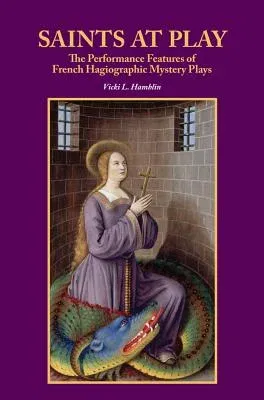Vicki L Hamblin
(Author)Saints at Play HbHardcover, 1 February 2013

Qty
1
Turbo
Ships in 2 - 3 days
In Stock
Free Delivery
Cash on Delivery
15 Days
Free Returns
Secure Checkout

Part of Series
Research in Medieval Culture
Part of Series
Research in Medieval and Early Modern Culture
Print Length
266 pages
Language
English
Publisher
Medieval Institute Publications
Date Published
1 Feb 2013
ISBN-10
158044167X
ISBN-13
9781580441674
Description
Product Details
Author:
Book Format:
Hardcover
Country of Origin:
GB
Date Published:
1 February 2013
ISBN-10:
158044167X
ISBN-13:
9781580441674
Language:
English
Location:
Kalamazoo
Pages:
266
Publisher:
Weight:
1542.21 gm